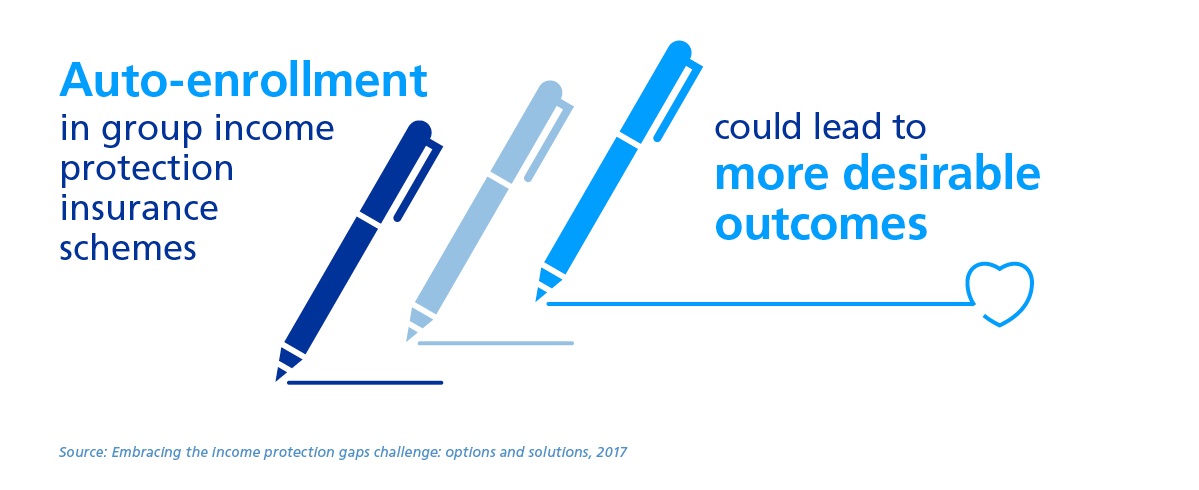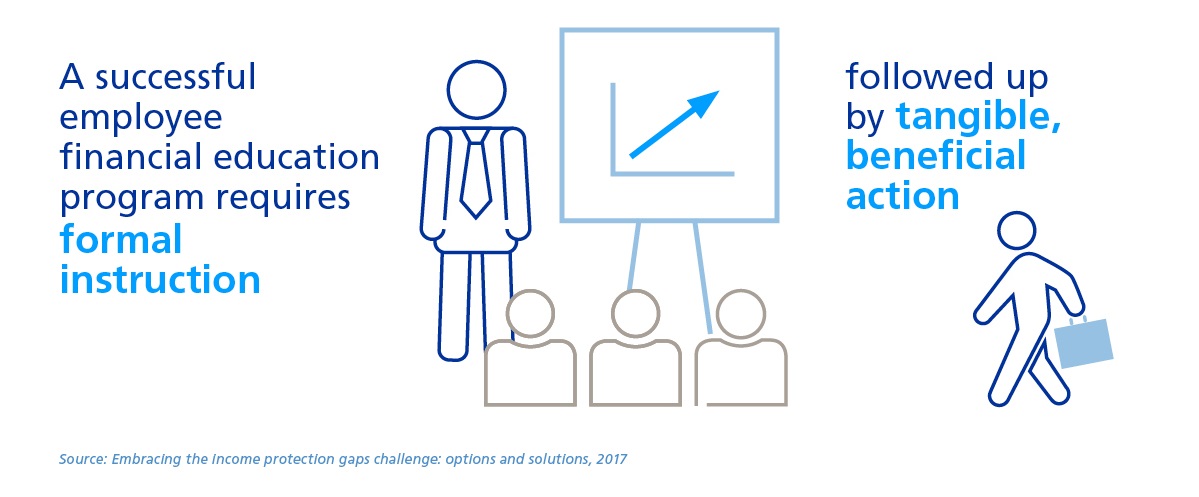Companies are a key stakeholder in closing income protection gaps
Future of workArticleNovember 13, 2017
Companies have an increasingly important role to play in helping their employees protect themselves against lost income due to disability or ill health, according to a report published by Zurich Insurance Group.
The report, Embracing the income protection gaps challenge: options and solutions, is the culmination of a three-year alliance between Zurich and the Smith School of Enterprise and the Environment at Oxford University to understand income protection gaps (IPGs), the reduction in a household’s income due to the loss or incapacitation of an adult wage earner.
The first phase of this alliance examined the scale of IPGs globally. It determined that, with some local and regional variations, IPGs were widening globally as population aging and sluggish economic growth put increasing pressure on publicly financed social safety nets. Phase two explored how aware consumers were of the risks that they faced. Survey data from around 13,500 individuals in 12 countries showed that six in 10 felt they had little knowledge of how to protect themselves and many underestimate the risks they face. Around 60 percent of respondents reported that their savings would last less than six months if they lost their income.
In the third and final phase of this project, Zurich and the Smith School looked at ways in which the public and private sectors could work together to close IPGs. The study found that employers have a central role to play in helping to make their employees more resilient to income loss and proposed simple solutions, such as:
- Enrolling the workforce in contribution-based income protection insurance as part of their employment contract. For example, in 2013 L’Oreal launched its ‘Share and Care’ program, which offers a minimum death benefit and 24 months’ salary in the event of disability. The company plans to offer more flexible working arrangements from 2020.

- Provide employees with ongoing financial education and training to equip them with the practical knowledge and skills they need to make informed choices to protect themselves. Digital and online tools can help here.

- Offer health checks incentives to employees
Incentivizing people to have health checks not only create awareness but can lead people to have healthier lifestyles and so reduce health-related costs. - Promote healthy lifestyles in the work place by incentivizing healthy choices such as having regular health checks, exercising and eating well. Richemont, for example, is designing a Resilience and Wellbeing program to raise employee awareness while ABB has a Global Health Challenge that encourages employees to walk 10,000 steps a day. In addition, companies should provide early interventions for workers experiencing mental or physical health issues, and rehabilitation to get employees back to work as quickly as possible.
Companies, however, are not the only stakeholder with an interest in closing income protection gaps. Governments, insurers and workers also have a role to play in creating the appropriate regulatory framework, offering products and solutions, in engaging with the challenges and in driving the discussion around how best to solve them.
In its conclusion, the report notes that, “As working lives are changing and state welfare is increasingly outdated, new partnerships between employers, governments and the working population are required to extend protection to more vulnerable groups.”




